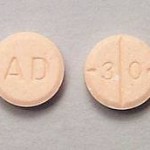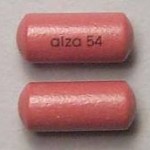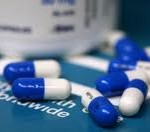Attention Deficit Hyperactivity Disorder or ADHD is commonly spotted in children but usually lasts until adulthood. Basically, ADHD is a disorder that manifests impulsiveness, overactivity, inattentiveness, or a mix of these. In adults, it is evident that you have this disorder if you are too overwhelmed by your obligations, severely distracted, overly forgetful, and very disorganized; you zone out most of the time; you always have incomplete work output; you listen and understand poorly; and you are always late. This could affect various areas of your life as an adult, namely relationships and career. Some people don’t really understand what adult ADHD patients go through. It’s a must for you to really know and recognize everything about adult ADHD to deal with it ideally.
If you were diagnosed with ADHD as a child, some of the signs and symptoms could most probably be carried over to your adult life. The disorder is an imbalance of chemicals in your brain. Anyone, whatever level of intelligence you have, may exhibit some signs and symptoms of ADHD at some point but only people with chronic dysfunctions by this disorder require accurate diagnosis and treatment. Many adults suffer from untreated ADHD problems simply because they might have just concluded that what they were experiencing all this time were just different conditions that actually didn’t need attention at all.
Because of what clearly goes wrong with them, adults usually manifest a symptom that comes out because of ADHD symptom compensation—hyperfocus. This is when you really get overly absorbed or engrossed in one thing that you are doing. You cannot possibly multi-task if you have hyperfocus. This can be geared toward something very productive, but could also result to problems at work or with relationships if not given appropriate attention. On the other hand, when the ADHD signs and symptoms really overwhelm you as an adult,  physical, financial, and personal problems really do arise. Physical problems are caused by aggravated health conditions that result to frequent neglect of medications and doctor’s appointments. Financial problems also arise because you cannot keep a job that sticks to routine, you cannot be on time, you cannot pay bills on schedule, and you spend a lot because you spend on impulse. Personal problems arise when you are accused or tagged as insensitive or irresponsible because of the things that you keep on doing wrong. You may also lose your confidence, become frustrated, disappointed, and hopeless.
Treatment of ADHD includes therapy and medication as well. The list of ADHD drugs for adults all include the prescribed drugs that aim to control or suppress the signs and symptoms of the condition. These medications can be immediate-release, intermediate, or long-acting forms. The given list of ADHD drugs for adults consists of stimulants, non-stimulants, and other prescriptions. Here are some of the stimulants that are included in the list of ADHD drugs for adults are the following:
1. Adderall (oral)
 Before you include Adderall in your list of ADHD drugs for adults, you must make sure that you read the medication label and discuss the use of dextroamphetamine and amphetamine with your doctor. Some side effects may include weight loss, shortness of breath, palpitations, fainting, chest pain, vomiting, nausea, fever, diarrhea, headache, sleeplessness, and nervousness. You should not drive or operate heavy machinery when you are taking this medication because it will make you dizzy. You should be open with your doctor about pregnancy or breastfeeding issues and even changes in moods or behavior during treatment proper.
Before you include Adderall in your list of ADHD drugs for adults, you must make sure that you read the medication label and discuss the use of dextroamphetamine and amphetamine with your doctor. Some side effects may include weight loss, shortness of breath, palpitations, fainting, chest pain, vomiting, nausea, fever, diarrhea, headache, sleeplessness, and nervousness. You should not drive or operate heavy machinery when you are taking this medication because it will make you dizzy. You should be open with your doctor about pregnancy or breastfeeding issues and even changes in moods or behavior during treatment proper.
2. Concerta (oral)
 Methylphenidate is the generic name of Concerta. If this is already in your list of ADHD drugs for adults, then you should take note that abuse of this drug could lead to detrimental and deadly blood pressure and heart conditions and also changes in mood and mentality. This is a medication that targets the attention problems, fatigue, depression, and narcolepsy in ADHD patients. Be sure that you always coordinate with your doctor while taking this drug because this may lead to addiction. Don’t change the dosage on your own. Some of Concerta side effects are dizziness, irritability, stomach pains, appetite loss, dry mouth, verbal tics, motor tics, mood changes, fainting, seizures, slurred speech, and shortness of breath. Make sure that you tell your doctor every single medication or supplement that you are regularly taking so that medical interactions would be known.
Methylphenidate is the generic name of Concerta. If this is already in your list of ADHD drugs for adults, then you should take note that abuse of this drug could lead to detrimental and deadly blood pressure and heart conditions and also changes in mood and mentality. This is a medication that targets the attention problems, fatigue, depression, and narcolepsy in ADHD patients. Be sure that you always coordinate with your doctor while taking this drug because this may lead to addiction. Don’t change the dosage on your own. Some of Concerta side effects are dizziness, irritability, stomach pains, appetite loss, dry mouth, verbal tics, motor tics, mood changes, fainting, seizures, slurred speech, and shortness of breath. Make sure that you tell your doctor every single medication or supplement that you are regularly taking so that medical interactions would be known.
3. Vyvanse (oral)
 Lisdexamfetamine or Vyvanse is also one of the stimulants included in the list of ADHD drugs for adults. It helps with attention problems , fidgeting, and focusing. It also helps in restoring the balance of the naturally-occuring brain chemicals. You should take note that this medication is not for patients under three years of age. Concerta is used to treat sleeplessness and mood swings. Addiction to this drug is very possible so you have to constantly be in touch with your doctor. Some side effects are sweating, vomiting, restlessness, irritability, weight loss, muscle twitching, sexual interest changes, sudden outbursts (words and sounds), blurred vision, aggression, uncontrolled/sudden movements, hallucinations, and weakness (one side of body). You should inform your physician of your medical history and the other medications that you are currently taking to have a better grasp at the interactions.
Lisdexamfetamine or Vyvanse is also one of the stimulants included in the list of ADHD drugs for adults. It helps with attention problems , fidgeting, and focusing. It also helps in restoring the balance of the naturally-occuring brain chemicals. You should take note that this medication is not for patients under three years of age. Concerta is used to treat sleeplessness and mood swings. Addiction to this drug is very possible so you have to constantly be in touch with your doctor. Some side effects are sweating, vomiting, restlessness, irritability, weight loss, muscle twitching, sexual interest changes, sudden outbursts (words and sounds), blurred vision, aggression, uncontrolled/sudden movements, hallucinations, and weakness (one side of body). You should inform your physician of your medical history and the other medications that you are currently taking to have a better grasp at the interactions.
Having ADHD as an adult can really be demoralizing for anyone because it is when you reach adulthood that you really put your skills and abilities to the test. By working well with your doctor, you can really be sure that those included in your list of ADHD drugs for adults will give you the desired effects that you need.
